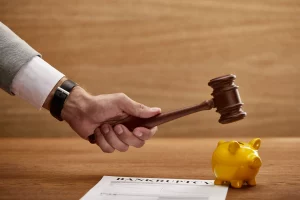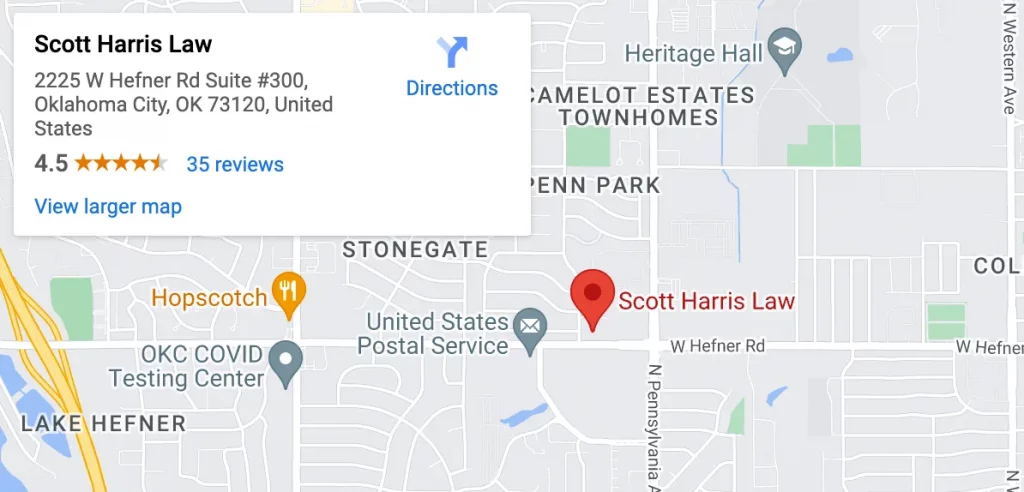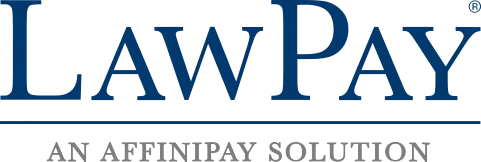Chapter 13 Bankruptcy Attorney in Oklahoma, OK
The majority of people, at some point in their lives, will experience a difficult time financially. Sadly, for some people, that bump in the road can eventually turn into a sinkhole, leaving them unable to pay their mortgage, car payment, credit card bills, utility bills, business expenses, and other essential expenses. When you are at risk of losing everything, you need the assistance of knowledgeable chapter 13 bankruptcy lawyers in Oklahoma who have the resources and the skills to assist you in developing a workable strategy in converting your chapter 13 to chapter 7 bankruptcy.
Thousands of individuals and businesses in Oklahoma have received assistance from Scott Harris Law’s bankruptcy attorneys. Our attorneys have assisted in the filing for bankruptcy protection.
Why Do I Need an Attorney in Converting My Chapter 13 to Chapter 7 Bankruptcy?
 A bankruptcy attorney is an attorney who is experienced in representing clients in court, drafting legal documents for clients, and providing advice to clients regarding bankruptcy. A law degree and a license to practice law in the state in which the attorney intends to work are prerequisites for becoming a lawyer.
A bankruptcy attorney is an attorney who is experienced in representing clients in court, drafting legal documents for clients, and providing advice to clients regarding bankruptcy. A law degree and a license to practice law in the state in which the attorney intends to work are prerequisites for becoming a lawyer.
A bankruptcy attorney can serve as your guide through the process of filing for bankruptcy and offer advice on the following topics:
- The question of whether or not to file for bankruptcy
- In what kind of bankruptcy should the petition be filed
- How the process of filing for bankruptcy actually works
- Which forms that were issued by the court need to be filled out
- Which kinds of financial obligations are qualified for consolidation, reduction, or cancellation
The outcome of the bankruptcy case will determine whether or not you will be able to keep your home, vehicle, and any other property you currently own.
In general, a bankruptcy attorney can direct you toward the appropriate legal course of action. If you handle your bankruptcy case without the assistance of an attorney, you run the risk of making legal mistakes that could have far-reaching repercussions for your finances.
Things to Prepare When You’ve Decided to Hire a Chapter 13 Bankruptcy Lawyer
If you decide to retain legal representation for your bankruptcy case, you should be prepared for the following:
- An agreement or a contract that is legally binding and is made between you and the attorney. A synopsis of the attorney’s services will likely be included in the agreement.
- An explanation of the payment terms and conditions. For instance, will the attorney charge a flat rate or one based on the number of hours worked? How much will it cost in total?
- Conversations that are still going on. You will talk about the attorney’s strategy for handling your case.
- An agreement. You are the one who will decide the manner in which and the frequency with which the attorney will provide you with case updates.
- A listing of all the documents. The attorney representing you in the bankruptcy case ought to supply you with an exhaustive list of the necessary documents for the case.
Converting Chapter 13 Bankruptcy to Chapter 7
Numerous issues are addressed in Chapter 13. But completing a plan is difficult, especially if you suffer a job loss, illness or injury, or other income-reducing events.
If you can no longer afford your Chapter 13 plan payments, you may be able to convert your case to a Chapter 7 proceeding. Learn how to convert Chapter 13 to Chapter 7 by reading on.
Considerations for Changing Chapter 13 to Chapter 7
When most debtors encounter difficulties in Chapter 13 bankruptcy:
- Due to a change in their financial circumstances, they can no longer afford to make Chapter 13 plan payments, or
- They want to give up a house or car that Chapter 13 was designed to save.
However, if the debtor stops making payments, the case will be dismissed. The creditor will receive credit for payments made, but the debtor will continue to be responsible for any outstanding balances. A Chapter 7 conversion, on the other hand, will allow the debtor to discharge (erase) all qualifying debt.
How to Convert Chapter 13 to Chapter 7
You may convert your Chapter 13 case to Chapter 7 at any time unless you have received a Chapter 7 bankruptcy discharge within the past eight years. You must file a Notice of Conversion with the court and pay a conversion fee. No official bankruptcy form exists for this notice, but your court may have a local form.
Keep in mind that you must still qualify for Chapter 7 bankruptcy in order to receive a discharge and close your case.
Eligibility for Chapter 7 Bankruptcy
Before qualifying for a Chapter 7 discharge, a debtor must, in most cases, pass the means test. However, bankruptcy courts are split over whether the means test applies to Chapter 7 conversions. Some states require debtors to pass the means test, while others do not.
If you filed a Chapter 13 bankruptcy because you were ineligible for a Chapter 7 bankruptcy, consult your local rules or a competent bankruptcy attorney before converting your case. In addition, even if the means test is not required, you must still explain why you cannot afford the repayment plan.
Conversion Procedures From Chapter 13 to Chapter 7
When you convert your case, a Chapter 7 trustee will be assigned to you. Additionally, you must attend a meeting of creditors (also called the 341 hearing). Although you are not required to file a new bankruptcy petition, after converting your bankruptcy, you will typically need to file additional forms and amend certain schedules.
Schedule I and Schedule J Modifications
Modifying Schedule I and Schedule J to reflect your current budget will demonstrate that you cannot afford Chapter 13 payments. Some courts may also require you to submit a declaration outlining the reasons for your conversion.
If you have a mortgage, auto loan, or other secured debt, you must file a Chapter 7 Statement of Intention. This form informs the court and your creditors of your plans for the property securing the loan.
What Will Become of My Home When I Convert My Chapter 13 to Chapter 7 Bankruptcy?
Schedule A/B is where you listed your property in your Chapter 13 petition. The Chapter 7 trustee will sell any non-exempt property that you still possess after converting your case. The trustee will distribute the funds to the debtor’s creditors.
Many individuals file for Chapter 13 to retain their assets. So this is the rule that causes the most trouble for people. You may be required to give up your home, car, or cherished possession.
Liquidating Non-Exempt Assets
Under specific conditions, the court may compel you to convert your Chapter 13 bankruptcy to Chapter 7 so that your non-exempt assets can be liquidated to pay your creditors. The most common reasons include lying on bankruptcy papers, concealing assets, filing for bankruptcy to delay or hinder creditors, or otherwise abusing the bankruptcy system.
Seek Legal Advice in Converting Your Chapter 13 to Chapter 7 Bankruptcy Today!
Are you still having issues with converting your chapter 13 bankruptcy to chapter 7? Worry no more. Our Oklahoma bankruptcy lawyers are here to help you. To schedule an initial consultation, please contact Oklahoma Bankruptcy Law today via our website.
The conversion of Chapter 13 to Chapter 7 can be advantageous. If you qualify, it will eliminate debts like credit card balances, medical expenses, and personal loans. However, you may lose valuable property. It is prudent to consult a local bankruptcy attorney in order to comprehend the consequences of conversion.
We make it a priority to address the issues that arise from bankruptcies and act promptly when necessary to take legal action. If you have any inquiries, please do not hesitate to give us a call or schedule an appointment for a consultation. Speak with us anytime to talk about the various legal options that are open to you.




